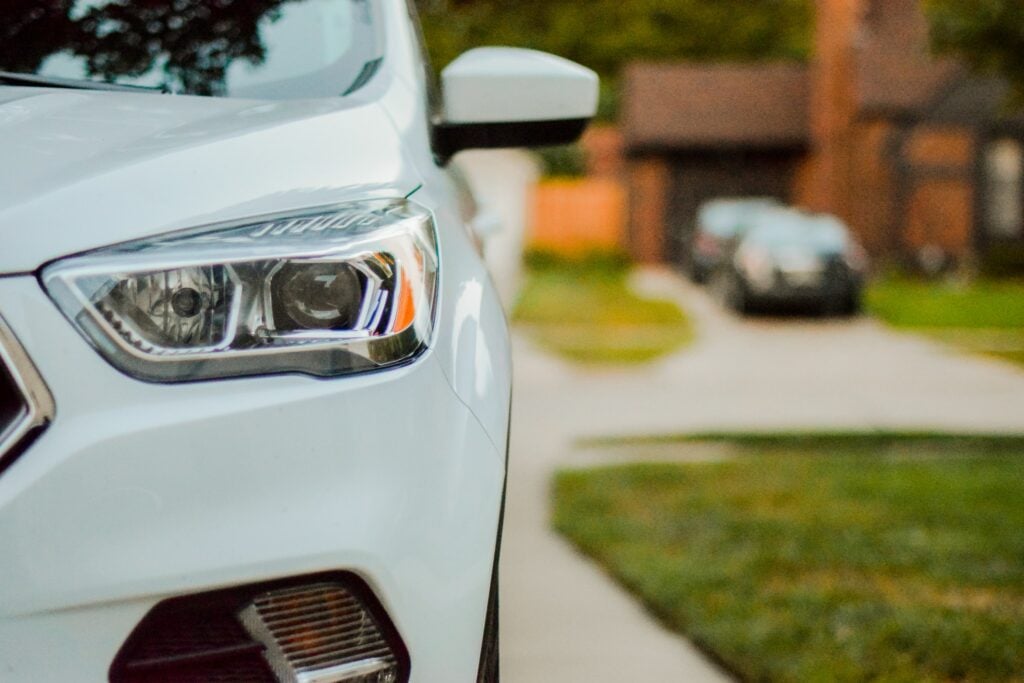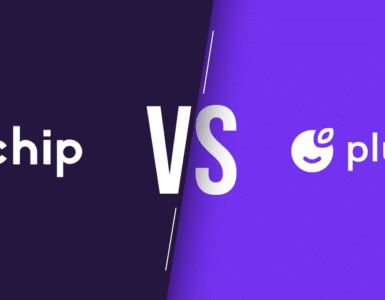Insurance may not be the most fun thing to spend your money on, but it’s definitely one of the most important. Here we list the different types of insurance policies in the UK and show how you can compare prices using Emma.
Vehicle Insurance
If you drive a car, van or motorbike then it is essential that you have vehicle insurance. Not only is this a requirement of the law, having vehicle insurance also protects you financially if your car is stolen, damaged or involved in any accidents.
Depending on the type of policy you take out, you’ll be given different levels of protection. There are Fully Comprehensive policies, Third Party, and Third Party Fire & Theft.
Fully comprehensive gives the driver the most protection, and is usually the most expensive option. Third Party Fire & Theft has slightly more cover. Whereas Third Party insurance is the cheapest option and normally only suitable for anyone who has a vehicle, but that doesn’t frequently drive.
If your car is in regular use and you are caught without vehicle insurance, you can be fined up to £1,000. In some cases your vehicle might even be seized, or destroyed.
The only time you do not need to pay for vehicle insurance is when you have declared the vehicle not in use by completing a Statutory off Road Notice.
If you want to check if you’re on the best deal for vehicle insurance, head to the Save Money tab in Emma and click on car insurance. From there we’ll search through hundreds of prices from a range of trusted insurance providers to help you find the best deal. The process is super fast and could end up saving you big bucks.

Household Insurance
Household insurance isn’t a legal requirement if you own your own home in the UK, but it will usually be required as part of your mortgage. Most people prefer to take out home insurance because the cost of fixing items related to your home can be quite expensive.
There are a couple of different types of home insurance that are designed to protect your property, and all your belongings inside.
The first is buildings insurance. You would take out buildings insurance to cover the costs of any damage to the structure of your home. If you need to replace any windows or walls, or need to carry out maintenance work on your roof, then buildings insurance can help.
You then have content insurance. This type of insurance does not relate to your actual home, but your belongings inside. You would take out this type of insurance to cover yourself financially in case your items were damaged, or stolen.
If you’re unsure what is covered in content vs buildings insurance then remember; if you can take something with you into a new home then this will fall under content insurance, if you can’t then this is more likely to come under buildings insurance.
It’s for this reason that if you’re renting, you only need to take out contents insurance. Your landlord is responsible for the building, and therefore it is up to him to manage buildings insurance.
Head to the Save Money tab in Emma and click on Compare Insurance. From there head to Home Insurance and compare quotes from a wide range of providers. Find the most competitive deal and we could save you over £100!

Travel Insurance
As with household insurance, travel insurance is not a legal requirement. Not having it however has the potential to leave you massively out of pocket. For the majority of people, the small premiums available make it worthwhile for the peace of mind whilst you’re away.
Travel insurance in the UK covers a wide variety of eventualities. From falling ill on holiday to lost baggage to something a lot of people have experienced in the last year… cancelled trips.
There are a couple of options you can choose from when picking your travel insurance.
You can choose between Single Trip and Annual insurance. Single Trip cover is where you choose an insurance plan for the length of one trip you’re taking. Whereas annual insurance covers you for 12 months, regardless of how many trips you take. Depending on how many times you’re likely to travel, annual travel insurance usually works out as a cheaper option.
You can also choose between individual, couple or family insurance policies. The price you pay for your travel insurance will then depend on where you’re going, what activities you’re likely to take part in, and your age. Make sure you shop around to see which type of cover works best for you.
If you’re planning a trip away, head to the Save Money tab in Emma and click on Compare Insurances. From there scroll down until you see Travel Insurance. We can help you save up to £25 on your travel insurance in as little as two minutes.
Pet Insurance
Pet insurance is similar to travel insurance in the sense that it is very much an optional cost. However without it, you could end up paying a fortune if anything was to go wrong.
If your pet falls ill unexpectedly, pet insurance will take the weight off any huge vet fees that you may have to pay. Some pet insurance policies will also pay out if your pet is stolen, dies, or causes damage to another person’s property.
Most insurance policies have the option of lifetime cover, non-lifetime cover, and accident-only insurance.
With the lifetime cover you can either take out a policy which insures your pet for specific conditions, or you can take out an annual cover which covers all conditions your pet may face. The non-lifetime insurance policy usually lasts for 12 months. And the accident only insurance, which is normally the cheapest out of the three, only provides a fixed sum of money for each accident or injury.
Open the Save Money tab in Emma and head to the insurance section. Scroll down to pet insurance and within five minutes you could have compared quotes from a wide range of pet insurers. Make sure you fill out the questions as accurately as possible to ensure you’re getting the best deals.

Mobile Phone Insurance
Mobile phones are becoming increasingly expensive. Taking out mobile phone insurance can therefore give you the peace of mind that if your phone is lost, damaged, or stolen you will be covered financially in the replacing or repairing of your phone.
The price of mobile phone insurance can vary wildly. If you’re considering insuring your phone, then make sure you spend some time shopping around. Check with your network provider, and also compare specialist mobile insurance policies.
If you have contents insurance, then your phone may already be covered so make sure you double check.
Income Protection Insurance
Income Protection is a type of insurance in the UK that covers you in the eventuality that you are not able to work anymore. This could be due to an illness. Or, an accident that means you are no longer able to earn an income.
This type of insurance gives you the peace of mind that if something were to happen to you, you’d be able to continue paying the bills without relying solely on your savings. The cost of the policy depends on a few factors. Like, your age, your job, your health, and the percentage of income you’d like to cover.
If you then need to claim Income protection, the money will replace part of your income until you can start working again, or until you retire. It’s more common amongst self-employed people as they often don’t have the option to claim sick pay.
If you have large amounts of savings, have access to sick pay, can rely on Government benefits or have family that would support you then you may not need to take out income protection insurance.

Life Insurance
When you take out life insurance you enter into a contract with an insurer, which promises to pay a designated sum of money upon your death. In exchange, you pay the insurer a premium each year.
Most people decide to take out life insurance to help minimise the financial impact that your death could have. You might use the money from life insurance to help your family continue to pay for everyday items like childcare, mortgage repayments or household bills, when they can no longer rely on your income.
There are two common types of life insurance; term life insurance and whole life insurance.
With term life insurance you are only covered for a certain amount of time, whether this be one year, or fifty years. You then make monthly, or yearly payments to the insurance company for the contract term. When deciding how long you want the contract to be, many people think about when their mortgage repayments will stop. Or, when family members might be in a better position to support themselves.
With whole life insurance, you take out a policy which covers the whole of your life. This means the insurance money will be paid whenever you die, rather than just within a specific time frame. This policy is generally the more expensive out of the two, because insurers are contracted to pay out at some point.
Head to the Save Money tab and open the life insurance section if you’re interested in this type of insurance. In only five minutes you can get a quote for up to £100,000 cover from just £4.69 a month!
Summary
The type of insurance you take out hugely depends on your personal circumstances. For one person, it may make sense to spend money each month on contents insurance. But, for someone else, they might prefer to use this money on their pet insurance. Whichever types of insurance you are considering, make sure you shop around to find the most competitive deals.
Emma is a money management app that connects all your bank accounts to track your monthly spending and subscriptions. We’ll help you visualise and take control of your finances. Make sure you aren’t overspending and show you practical steps to start budgeting effectively.







[…] the basics of saving, investing (compound interest..if you know, you know), how banking works, insurance, and pensions will go a long […]
[…] Insurance […]
[…] you could review all your insurance policies. It’s a well-known fact that brands don’t offer the best deals for existing customers, so […]
[…] more information about the different types of car, pet, life, and home insurance, click through to this […]